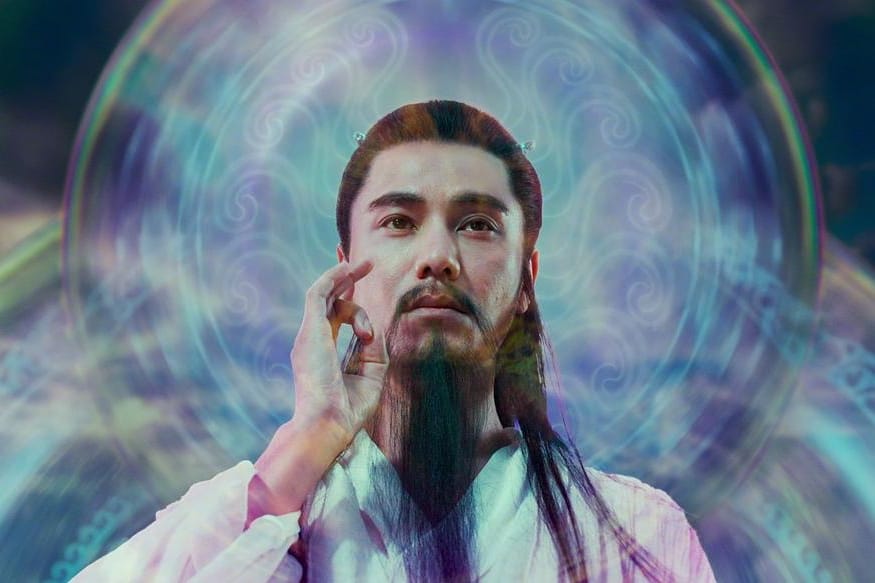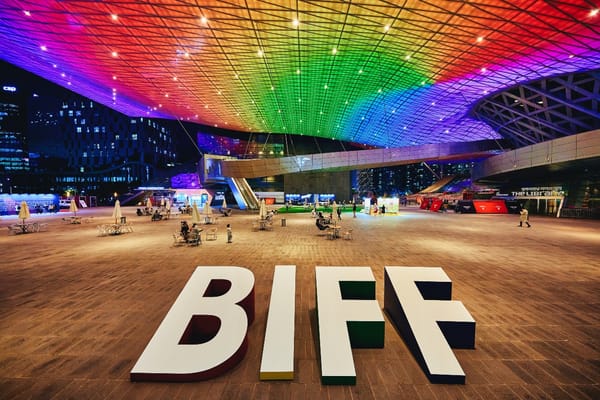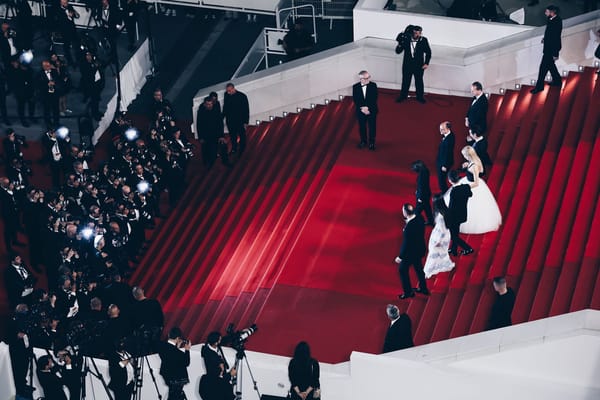Inside Mainland China’s Scorching Hot Box Office Summer

Last weekend I decided to take a look at mainland China’s box office recovery from the inside and took the ferry across to Shenzhen to watch some movies.
I saw two Chinese films in multiplexes in the Nanshan district – creature feature The Meg 2: The Trench, a Sino-US collaboration (not strictly speaking a co-production, which these days is rarer than a prehistoric shark), and Wuershan’s Creation Of The Gods 1: Kingdom Of Storms, the first part in a big-budget trilogy billed as China’s answer to The Lord Of The Rings.
The trip, which was the first real contact I’ve had with mainland China since before the pandemic, was enlightening and answered a few questions we’ve all been mulling about why Hollywood films have not been performing well in this market. But as always when I visit China, it raised more questions than it answered.
First the data – Maoyan announced this week that as of August 17, China’s total box office for the summer season (starting on June 1) had already reached RMB17.78bn (US$2.4bn), beating the previous record set in the pre-pandemic year of 2018.
The top-grossing movie over the period, crime thriller Lost In The Stars, took RMB3.52bn (US$383m), but Creation Of The Gods and Wang Baoqiang’s Never Say Never have also grossed more than RMB2bn over the summer.
Hollywood has been less fortunate. Barbie had young Chinese women dressing in pink and discussing the film’s positive female empowerment messages on social media, but has managed only RMB246m (US$33.8m) so far, while the latest installment in the Mission: Impossible franchise has pulled in RMB346m ($47.6m). Still, Barbie’s China gross was on par with its takings in France, Spain and Italy and it fared much better than Teenage Mutant Ninja Turtles, which sank without trace.
Meanwhile, Artisan Gateway recently reported that China’s box office for the year to date has reached US$5.5bn, up 72% on this point last year and only 6% behind 2019.
These encouraging figures are in stark contrast to China’s overall post-pandemic economic data, which has been so depressing that Beijing recently decided to stop reporting youth unemployment figures. A wobbly property market, high rates of graduate unemployment and lack of consumer confidence have all contributed to a sputtering recovery that threatens to become a drag on the global economy.
But there was not much evidence of economic hardship in the two cinemas and shopping malls I visited – the Huaxia Starlight cinema in the Nanshan Book Station mall and Broadway Cinematheque in MixC (which in addition to the blockbusters was screening an Ennio Morricone season).

While maybe not as crowded as pre-pandemic days, the malls were busy, shoppers were trying out high-end electronics including VR headsets and the two screenings I went to were full houses. Restaurants were also packed to the extent that the only place I could get into at MixC on a Saturday night was a tapas joint, as anything Asian or Italian had a lengthy queue. Chinese has a popular term “guangjie” which literally means strolling in the streets and is used to refer to window shopping, so perhaps it was only the cinemas and restaurants doing brisk business. But Shenzhen was buzzing with a nary a mask in sight.
Of course, air-conditioned malls and cinemas don’t have much competition during hot, humid summers, but it was also clear that another draw for the theatrical experience was the diversity of films on offer.
I had opted for two big-budget action movies – The Meg 2, directed by the UK’s Ben Wheatley, stars Jason Statham and Chinese star Wu Jing doing battle with giant sharks, while Creation Of The Gods is based on a Chinese 16th Century classic that involves massive battle scenes, shape-shifting demons and some surprisingly psychedelic interludes from the eponymous deities. Both films were highly entertaining – The Meg 2 was a lot of fun and one of the better attempts I’ve seen at combining Western and Chinese cultural elements. Creation Of The Gods was sufficiently spectacular to keep me wide awake despite a two and a half hour running time and no English subtitles to compensate for my rusty Chinese.
But had I not been in the mood for action, there were plenty of other options on offer that weekend. There were inspirational dramas and comedies in the form of Never Say Never, about a group of underprivileged kids seeking a better life through martial arts competitions, and Dong Chengpeng’s One And Only, starring Huang Bo and Wang Yibo in a tale about a hip-hop veteran working with a young break-dancer.
There was also Light Chaser Animation’s Chang’An, a three-hour animated feature about Tang Dynasty poets that has reportedly been a big hit with families. And previews were ramping up for crime thriller No More Bets, produced by Ning Hao, about a young programmer and a model who get caught up in an overseas fraud scheme (the film has since gone on to gross RMB2.43bn)
It wasn’t that Barbie was being shunned by Chinese audiences – it was more a case of the film just having a lot of competition.
And unlike Barbie, a postmodern film about a doll that few in China have ever played with, all these films are culturally relevant to Chinese audiences.

Some of that cultural relevance is definitely planned – the government actively encourages Chinese studios to make films that focus on Chinese culture (like 16th Century classics and Tang Dynasty poets). This sometimes works, sometimes doesn’t, and rarely resonates with overseas audiences. But not all the films China is currently making beat you over the head with political messaging. Creation Of The Gods was just a ripping good yarn, albeit one that means nothing to Western audiences, and is probably by now over-familiar to Chinese audiences after a string of recent live-action and animated adaptations.
Looking at recent local media coverage of China’s summer box office, the propaganda machine is obviously in full effect, telling us that Hollywood movies are tired, repetitive and no longer relevant for Chinese audiences. But even propaganda requires a kernel of truth, and Disney’s Bob Iger recently admitted that Hollywood may be over-exploiting its most popular franchises. Fact is that back in the mid-90s when Hollywood films first entered the market, there was very little else on offer. Now China is capable of making its own blockbusters, and while they may not have Indiana Jones or Mission: Impossible level budgets, production quality has improved and is on par with anything else in the region.

There are, of course, more mundane reasons for the under-performance of Hollywood films. US studio movies usually get their release dates confirmed very late, which makes marketing difficult, and cinemas are often requested to prioritise local films. During the pandemic, very few foreign movies were allowed in, which decreased the interest of local audiences, and also disrupted the marketing and distribution systems behind these films.
A friend who works on the exhibition side in China pointed out that Hollywood’s marketing machine was mostly mothballed during the pandemic – many experienced executives and companies have left the business – and it will take some time for it to ramp up again. China was once a major stop on global promotional tours. But long before the SAG-AFTRA strike put a stop to any film promotion, Hollywood stars had already become a rare sight in Beijing.
Another issue that may merit further investigation is the discounting system. I had another motive for visiting Shenzhen – Tencent recently announced it’s now possible to link your WeChat account to a foreign credit card, so finally foreigners without Chinese bank accounts can use the country’s ubiquitous digital payments system (doing anything without WeChat or Alipay in China is a major headache).
However, you have to upload some documents to make this work, and it was only after I left Shenzhen that I succeeded in getting my card linked. That meant I had to pay full whack for movie tickets – more than RMB70 (around US$10 at today’s exchange rate) – whereas once the card was linked I could get the discounted price of around RMB30 (US$4).
Presumably, it’s the big tech companies like Maoyan and Alibaba’s Taopiaopiao that are subsidising this discounting, but which movies are they supporting and how does it all work? Maoyan started out as a ticketing platform, but is now also a leading producer and distributor – it was one of the major investors in Creation Of The Gods. Tech industry dominance may be playing a greater role in Chinese film marketing than it does even in the West, and that may not always work to the benefit of Hollywood movies.
A final question that is difficult to answer is how long the current winning streak can be maintained. That mostly depends on the upcoming line-up of movies and release dates for both foreign and local films are not confirmed very far in advance.
However, the release schedule for the next few months looks promising. Hollywood may strike back with Oppenheimer, which opens on August 30, as Christopher Nolan is worshipped in China. The National Day holiday period (October 1-6) so far has two strong local films confirmed for release – Zhang Yimou’s crime drama Under The Light, starring Lei Jiayin, Zhang Guoli and Zhou Dongyu, which opens on September 28, and Chen Kaige’s war epic The Great Victory, featuring an ensemble cast including Zhu Yilong (Lost In The Stars), which opens on October 1.
In the meantime, several festival and arthouse-focused films are releasing in the quieter period from late August to October, including Anthony Chen’s The Breaking Ice (Aug 22), Wei Shujun’s Ripples Of Life (Sept 8) and Liu Jiayin’s All Ears (Sept 9).
All in all, I may find myself taking the ferry back to Shenzhen one weekend quite soon.
AUGUST IN THE TRADES:
AWARDS SEASON:
Oscars: Korea Selects Disaster Epic ‘Concrete Utopia’ For Best International Film Race
LAB & FUNDING NEWS:
PRODUCTION NEWS:
Abu Dhabi’s Twofour54 Unveils Plans To Build Production Studio By 2025
CORPORATE:
Lucasfilm Closing Singapore VFX & Animation Studio After Two Decades
Mega Merger Of Sony & Zee In India Given Greenlight
CANCELLED:
Indian activist drama ‘Punjab ’95’ pulled from Toronto film festival
CURATED:
San Sebastian to open with Hayao Miyazaki’s ‘The Boy And The Heron’
Iran’s ‘Critical Zone’, Singapore’s ‘Dreaming & Dying’ Take Best Film Awards In Locarno
Box office hit ‘Talk To Me’ wins 2023 Fantasia international feature audience award
Malaysia’s ‘Abang Adik’ wins top prize at New York Asian Film Festival
FIRST Film Festival: Qin Tian’s Drama ‘Fate of the Moonlight’ Takes Major Prize
Lulu Wang’s series ‘Expats’ starring Nicole Kidman among TIFF Primetime world premieres
RELEASED:
Ghana To Host Inaugural Summit On African Cinema
SOLD:
Chinese martial arts drama ‘100 Yards’ lands US distribution deal
Fan Bingbing’s Feminist Thriller ‘Green Night’ Gets North American Distribution
Cineverse Takes North American Rights To Body-Swap Thriller ‘Devils’ Following Fantasia Premiere
STREAMING UPDATES:
Southeast Asia SVOD Numbers Flat In 2023 First Half While TikTok Booms, Report Says
ZEE5 Global Grows 35% in the U.S. as Drama and Comedy Score With South Asian Diaspora Audience
Disney+ Hotstar Sets Syria Thriller ‘The Freelancer’
‘The Killing Vote’ Korean Crime Drama Series Launched by Prime Video
Prime Video Snatches K-Drama ‘The Kidnapping Day’ Starring Yoon Kye-sang, Park Sung-hoon




